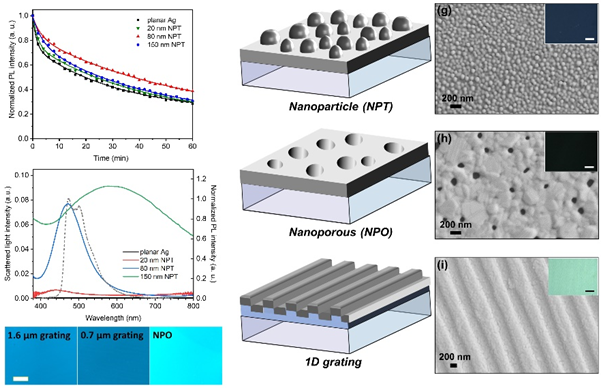
Novel OLEDs with higher photoluminescence stability
Invention Summary:
Organic light-emitting diodes (OLEDs) are an emerging display and lighting technology, especially for large area and architectural lighting. Phosphorescent OLEDs are very energy efficient, besides, they don’t suffer from the “green gap” in their emitting spectra Thus, they can generate diffuse light sources that more closely resemble natural light.
Rutgers researchers have invented a novel technique to employ extensive rate engineering provided by photonic and plasmonic nanostructures to increase the stability of light-emitting materials. Specifically, the emission lifetimes of blue phosphorescent organic materials are shortened using the high local density of optical states provided by nanophotonic structures. This causes reductions in triplet-based annihilation pathways that lead to efficiency roll-off in OLEDs at high luminance. As a result, the operational lifetime of the blue OLED is improved by more than a factor of three compared to traditional OLED designs. The novel approach allows for uniform amount of soft illumination evenly diffused across their entire surface, lightweight and extremely thin installations and can be configured into nearly any shape.
Advantages:
- Utilizes a carbon-based organic material to create light-emitting panels
- Uniform, high brightness, increased stability and efficiency of OLEDs
- Increased device operational lifetime by increasing the emission rate
Market Applications:
- Luminaire Manufacturing
- Office/Commercial space lighting
- Designer lighting, or customized lighting for large buildings
- Backlighting OLEDs panels and sheets
- Embedded lighting for consumer products
Intellectual Property & Development Status:
US Patent 10,693,098. Available for licensing and/or collaboration.